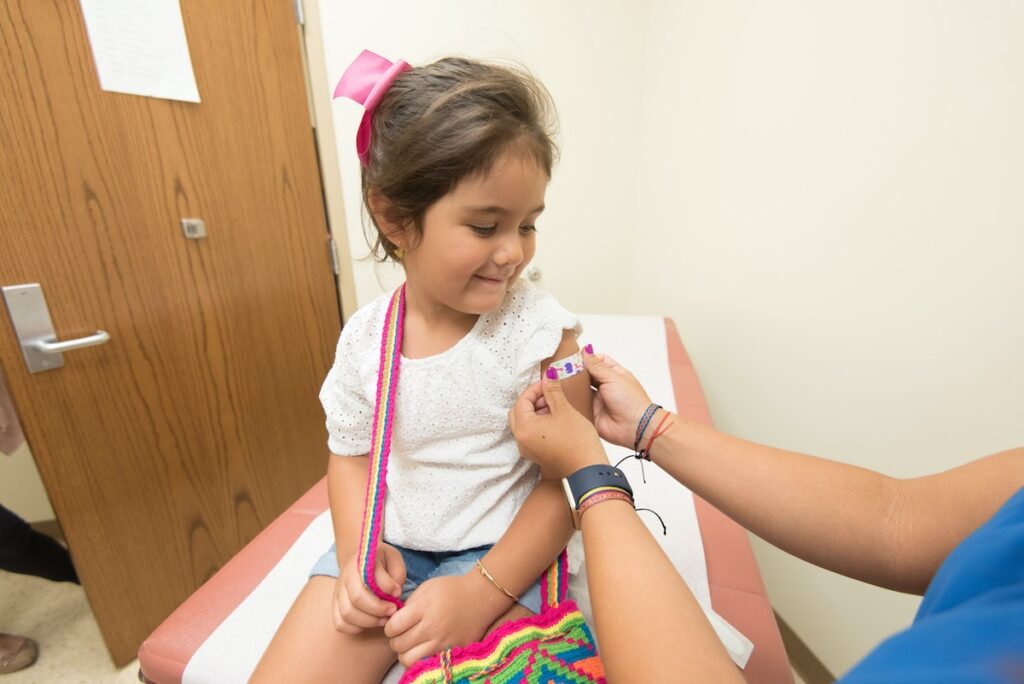One of the most important things you can do as a parent of a child with autism is to know the signs and get help early.
What is Autism?
Autism spectrum disorder is a developmental disability that can affect a kid’s behavior, communication, and social skills. Because it’s a spectrum disorder, autism can look vastly different from one child to the next. Some kids with autism are highly functional and go on to live independently as adults. Others may need significant help and support in their daily lives, even as they grow older.
Signs your Child May Have Autism
Autism can look very different from one child to the next. The signs may be obvious, or they may be subtle. Children with autism usually develop physically at the same rate as their peers, sitting, walking, and crawling on time. But parents may notice differences in the way their child interacts with others, communicates, uses body gestures, or plays.
Here are just some of the more common signs of autism:
- Lack of eye contact
- Shows little or no interest in communicating or talking with others
- Doesn’t respond to name being called but reacts to other noises
- Does not point
- Doesn’t engage in pretend play
- Does not interact with other people or other kids
- Has a heightened sensitivity to noise, textures, and smells
- May experience regression, where they lose language and social milestone around 15-24 months
- Uses repeated body gestures, such as rocking, swaying, flapping hands, twirling fingers, or walking on tip toes
- Delayed speech, so not using single words by 15 months or saying 2-word phrases by 24 months
It’s important to note that children develop at different rates and it is common for parents to compare their child and worry. It may be just normal developmental differences you’re witnessing. But, we want you to trust your instincts as a parent, and if something seems off, contact your provider at Pediatrics West, and we’ll find the best way to help your child.
How We Screen for Autism
Screening for autism is part of our routine well visits at Pediatrics West. We screen development at every check-up, including with ASQ questionnaires and follow the recommendation of the American Academy of Pediatrics to specifically screen all children at their 18 and 24-month well child visits for autism using the MCHAT questionnaire. We also use our time together at well visits to ask questions about family medical history, talk about your child’s development and behavior, and observe and interact with your child.
The screening is not a diagnosis, and does not tell us if your child has autism or not. However, it is a helpful tool in identifying if a full evaluation is needed. If your child needs an evaluation, we’ll refer you to an expert who can perform it. It typically includes a thorough assessment of their speech, behavior, physical abilities, social skills, and health history. We also have a collaboration with Children’s Hospital in which we do the initial part of that assessment in the office allowing for a fast-track referral process to Children’s.
Some children may exhibit signs of autism, but may actually have a different medical condition. Medical tests can also help identify or rule out other causes, such as lead poisoning or genetic disorders.
Treatment
Research has shown that getting help early for children with autism can help them make significant progress. Depending on your child’s age, they may receive services from their school (if they are 3 or older) or an early intervention program (for kids under 3). Because autism is a spectrum disorder, your child’s treatment and therapy will be personalized for them. Your child will work with a team of therapists to help your child in a variety of ways, including improving social, communication, and learning skills.
Some children with autism may also have other medical problems that may need treatment or more evaluation. For example, it’s not uncommon for kids to experience seizures, sleep problems, and gastrointestinal issues.
When to Ask for Help
If you have concerns about your child’s behavior or development, speak to your provider at Pediatrics West at 720-284-3700. You don’t have to wait until your child’s 18- or 24-month well visit to ask for a formal screening. It’s best to trust your gut to seek help because catching it early can make a big difference in your child’s development.


